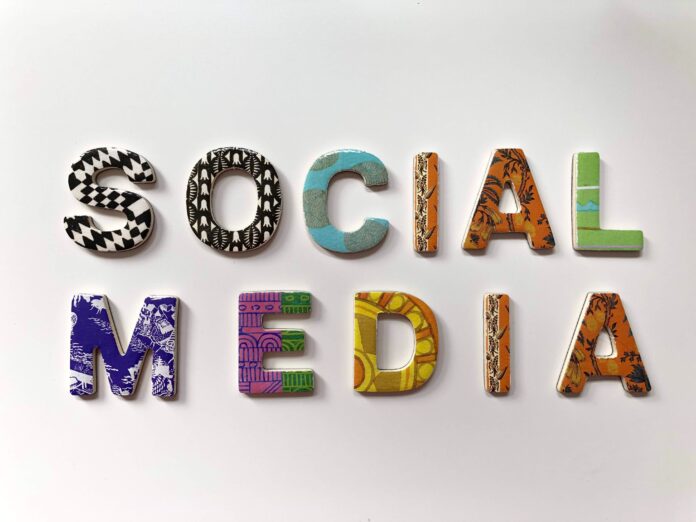Social media has become an integral part of our daily lives, revolutionizing the way we connect, share information, and interact with the world around us. It has transformed the way businesses operate, influenced political movements, and shaped cultural trends. Social media platforms provide individuals and organizations with powerful tools to communicate, collaborate, and engage with a global audience. In this era of digital connectivity, understanding the intricacies of social media is crucial for anyone looking to make the most of its potential. Here are five important aspects to consider:
1. Connectivity and Communication: At its core, social media is a platform for connecting and communicating with others. It enables individuals to build and maintain relationships, regardless of geographical barriers. Social media platforms allow users to share thoughts, ideas, and experiences instantaneously, fostering real-time conversations and bridging gaps between individuals, communities, and even nations. Whether it’s catching up with friends and family, networking with professionals, or engaging with like-minded individuals, social media provides a virtual space for interaction.
2. Information Sharing and News: Social media has emerged as a vital source of information and news dissemination. Platforms such as Twitter, Facebook, and Instagram have become primary channels for breaking news, citizen journalism, and sharing updates in real-time. With billions of users worldwide, social media acts as a rapid and accessible medium for distributing news articles, videos, and multimedia content. However, the vastness of information on social media demands a critical approach to distinguish reliable sources from misinformation or fake news.
3. Content Creation and Influencer Culture: Social media platforms empower individuals to become content creators, giving rise to the phenomenon of influencer culture. Users can share their creativity, expertise, and perspectives through various mediums, including photos, videos, blogs, podcasts, and more. Influencers, individuals with substantial online followings, have emerged as key players in marketing and advertising. Brands collaborate with influencers to reach targeted audiences and leverage their credibility and influence to promote products or services.
4. Privacy and Security: The vast amount of personal data shared on social media raises concerns about privacy and security. Users must be mindful of the information they share and the privacy settings they choose. Social media platforms collect and analyze user data to personalize experiences and deliver targeted ads. While this enhances user engagement, it also raises ethical questions about data privacy. Users should remain vigilant about their online presence, be cautious about sharing sensitive information, and regularly review and update their privacy settings.
5. Impact on Society and Mental Health: The pervasive nature of social media has both positive and negative impacts on society and mental health. On one hand, it fosters social activism, empowering marginalized communities, and enabling collective action. It provides a platform for raising awareness, mobilizing support, and driving social change. On the other hand, excessive social media usage can contribute to feelings of inadequacy, anxiety, and depression. The carefully curated, highlight-reel nature of social media can create unrealistic expectations and fuel social comparison. It is essential for users to practice digital well-being, set boundaries, and maintain a healthy balance between online and offline interactions.
Social media has revolutionized the way we connect, communicate, and engage with others. It has reshaped the landscape of information sharing, content creation, and marketing. However, it is vital to navigate social media with caution, considering aspects such as privacy, mental health, and critical evaluation of information. By understanding and harnessing the power of social media effectively, individuals and organizations can leverage its immense potential to connect, collaborate, and thrive in the digital age.
Social media’s impact on society extends beyond individual interactions. It has transformed the business landscape, providing a unique platform for companies to engage with customers, promote products, and build brand awareness. Businesses of all sizes have recognized the importance of a strong social media presence in reaching their target audience and staying competitive. Social media marketing strategies encompass various tactics, including targeted advertising, influencer collaborations, and content creation tailored to specific platforms. The ability to gather data and analyze user behavior on social media platforms allows businesses to refine their marketing efforts and deliver more personalized experiences to consumers.
Additionally, social media has played a significant role in shaping political movements and sparking social change. Activists and advocacy groups have utilized social media platforms to raise awareness about social issues, organize protests and rallies, and galvanize support on a global scale. The instantaneous nature of social media allows for rapid dissemination of information, making it an essential tool for activists to amplify their messages and connect with like-minded individuals. However, social media’s role in political discourse also brings challenges, such as the spread of misinformation and the echo chamber effect, where individuals are exposed only to viewpoints that align with their own.
The influence of social media extends to entertainment and popular culture as well. Celebrities and public figures utilize social media platforms to engage with their fans, share behind-the-scenes content, and promote their projects. It has become common for movies, TV shows, and music releases to generate buzz and gain momentum through strategic social media campaigns. The ability to create viral content and engage directly with fans has empowered artists and creators, allowing them to build loyal communities and expand their reach beyond traditional media channels.
However, it is important to recognize the potential downsides of social media. The constant exposure to carefully curated highlight reels of others’ lives can contribute to feelings of inadequacy, as individuals compare themselves to idealized versions presented on social media. The pressure to project a certain image and gain validation in the form of likes and comments can take a toll on mental health. Moreover, the addictive nature of social media, with its endless scrolling and notification prompts, can lead to excessive screen time and a loss of productivity.
Privacy and security are also significant concerns in the realm of social media. Users must be aware of the information they share and the privacy settings they choose. While social media platforms implement measures to protect user data, data breaches and unauthorized access are still possible. It is crucial for users to regularly review their privacy settings, be cautious about sharing personal information, and educate themselves about best practices for online safety.
In conclusion, social media has transformed the way we communicate, share information, and engage with the world. It has become an integral part of our personal and professional lives, connecting individuals, businesses, and communities on a global scale. While social media offers numerous opportunities for connectivity, information sharing, and self-expression, it also presents challenges related to privacy, mental health, and the veracity of information. By approaching social media with mindfulness, critical thinking, and a balanced perspective, individuals can navigate its complexities and harness its potential to foster meaningful connections, drive positive change, and thrive in the digital age.






















